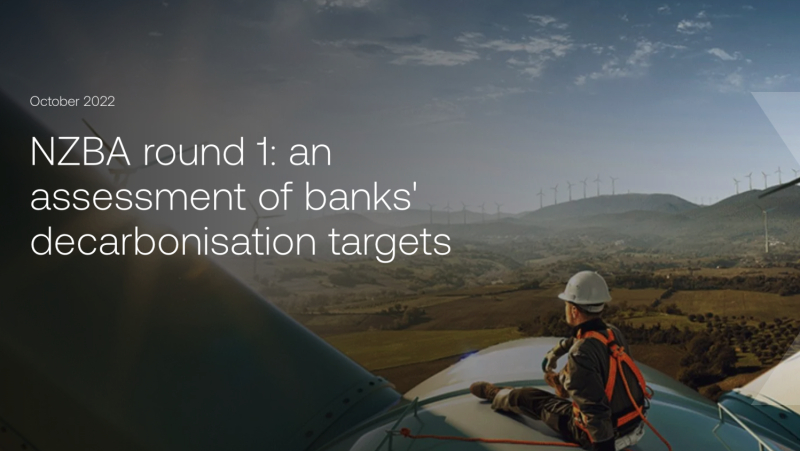NZBA round 1: an assessment of banks' decarbonisation targets

In April 2021, a group of global banks founded the Net-Zero Banking Alliance (NZBA), a UN-sponsored but industry-led initiative that is part of the Glasgow Financial Alliance for Net-Zero (GFANZ). The NZBA now has the backing of 119 banks representing ~40 per cent of global banking assets.
By signing up to the NZBA, banks commit to align their lending and investment portfolios with net-zero by 2050 and set science-based emission reduction targets for 2030 or sooner for the most carbon intensive sectors in their portfolios within 18 months of joining the alliance.
For many of these banks, the deadline to set targets of October 2022 has just passed.
We assessed the credibility of decarbonisation targets set by a global sub-set of leading NZBA members for their lending and/or capital markets activities in the first 18 months of the initiative against key ‘leading practice’ criteria (see Table 1). The 43 banks in scope of our report were selected on the basis of their NZBA membership, market size, and financing of the fossil fuel industry. More information on how we selected banks can be found in our Methodology section.
We have not undertaken a full assessment of whether these NZBA members have complied with the target-setting guidelines set by the NZBA. This is because the guidelines are sometimes vaguely defined or “optional” or “optional but strongly recommended”, and they fail to cover important criteria such as capital markets underwriting and facilitation.
We find that:
6. The scope of financing activities often doesn’t provide the full picture on financed emissions.
7. Most banks are excluding a major source of oil & gas sector financing from their oil & gas targets.
10. A lack of transparency on the target-setting process undermines the credibility of targets.
Republished from the original at ShareAction here.
